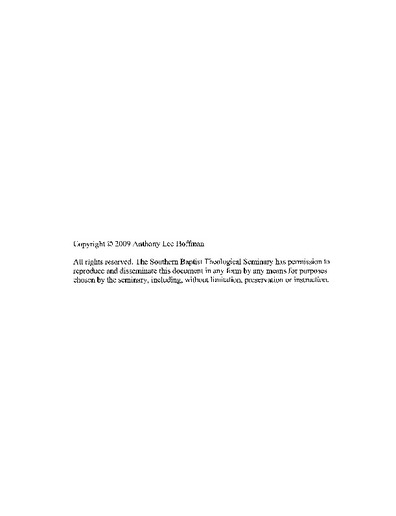The relationship between the practice of Christian spiritual disciplines and Internet pornography use among Christian college students
Subject
Internet pornographySpiritual exercises
Spiritual life--Christianity
Christian college students--Religious life
Male college students--Religious life
Abstract
This dissertation examined the relationship between the practice of Christian spiritual disciplines and Internet pornography use among Christian male college students. The problem of Internet pornography use by Christians raises the question of why Christian men have such a seemingly low resistance to online pornography, when studies show that they can resist other harmful behaviors, including sexual compulsions, presented through means other than the Internet.
In a review of the literature, the theological, historical, psychological, and sociological issues surrounding the use of Internet pornography were explored. The research employed a methodology in which male college students eighteen years and older, who described themselves as Christians, were surveyed to assess problems with Internet pornography use and practices of Christian spiritual disciplines. Research data were gathered using two research instruments: The Cyberporn Compulsivity Scale and The Christian Spiritual Participation Profile. Multiple regression analysis was then employed to ascertain the relationship between scores on the Cyberporn Compulsivity Scale, which functioned as the dependent variable, and scores on the Christian Spiritual Participation Profile which functioned as multiple independent variables.
The research found a relatively high level of Internet pornography use among Christian male college students. It also discovered a significant relationship between the practice of some Christian spiritual disciplines and Internet pornography use among Christian male college students. This work suggests that practicing Christian spiritual disciplines can be an effective strategy to overcome the temptation to consume Internet pornography. In addition, practical applications are suggested for personal spirituality, pastoral and Christian counseling, Christian discipleship, higher education, and church ministry.

